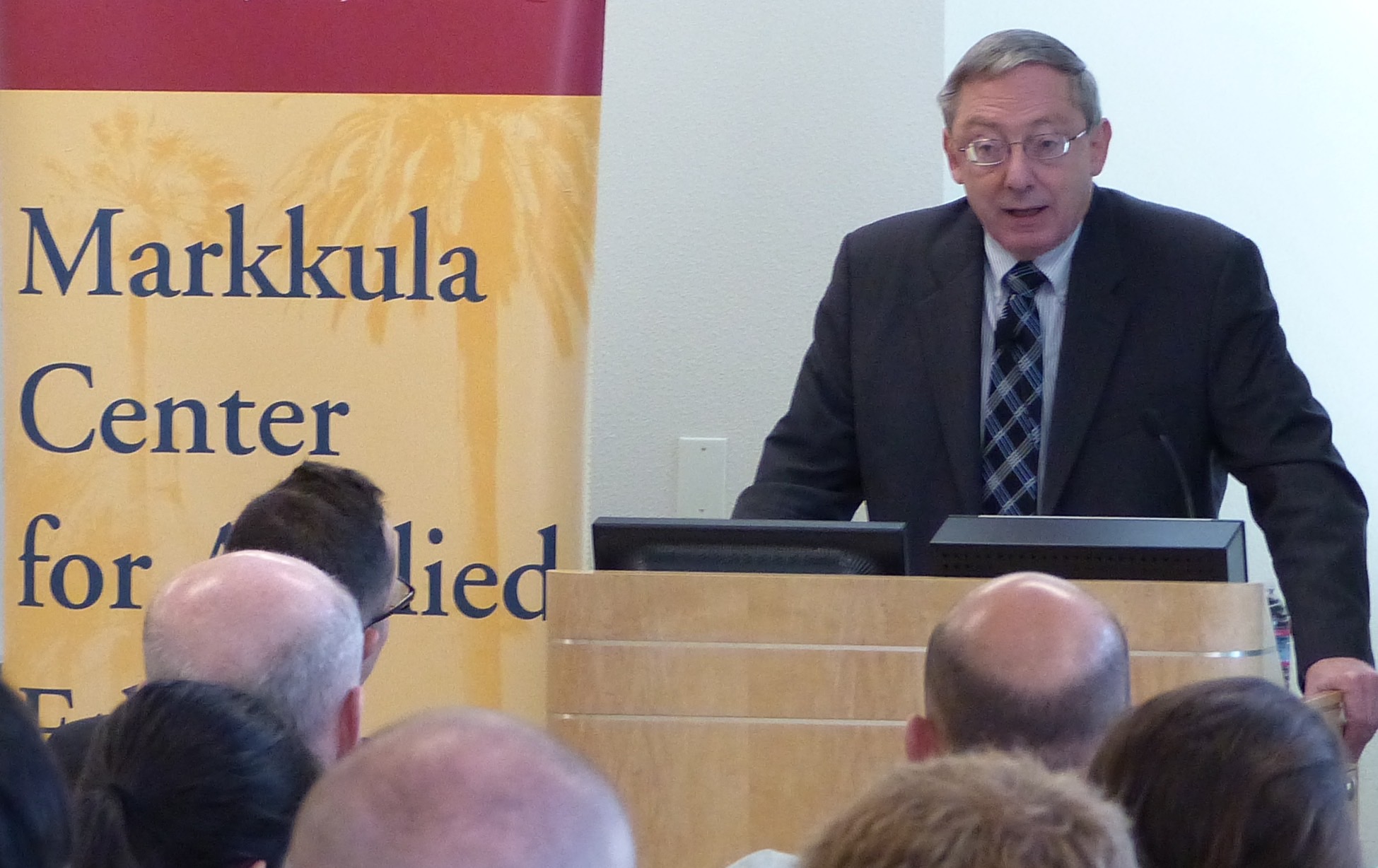
Religious Liberty and the Sexual Revolution
Tom Reese, S.J., distinguished visiting scholar at the Ethics Center, is a senior analyst for National Catholic Reporter, where he writes this week about an interview with Douglas Laycock, professor of law and religious studies at University of Virginia. Laycock spoke at the Ethics Center this year about "Religious Liberty and the Culture Wars."
[Laycock] argues that by continuing to fight on the losing side of the sexual revolution, churches endanger their religious liberty. He calls on churches to defend their religious liberty but not to try to impose their sexual values on others.
Laycock believes that "human liberty is a good thing, and especially with respect to matters that are deeply personal." Therefore, he believes that "the free exercise of religion is a good thing and that control of our own sex lives is a good thing."
...Laycock is a strong supporter of religious liberty. He supported the federal Religious Freedom and Restoration Act and state RFRAs modeled on the federal statute. He supports exemptions for religious nonprofits. He agrees with conservative churches who see "any requirement that they buy insurance that covers contraception coverage as imposing secular morality inside religious institutions."
But he acknowledges that "those demanding contraception do not see themselves as imposing secular rules on the church; they see the church as imposing religious rules on them." He warns the bishops, "it is a risky step to interfere with the most intimate details of other people’s lives while loudly claiming liberty for yourself. If you stand in the way of a revolution and lose, there will be consequences."
As a result, he argues that the bishops should accept the Obama administration's final rules for implementing the Affordable Care Act, which exempted churches from paying for contraceptives and required that insurance companies provide free contraceptives to the employees of religious colleges, universities, and hospitals if the institution notified the insurance company of its objections to coverage.
"These final rules offer a serious plan to protect religious liberty without depriving women of contraception," he writes. "These final rules are utterly inconsistent with the common charge that the Obama administration is engaged in a 'war on religion.' "
"The bishops would be well advised to accept a compromise that gives them reasonable insulation from the provision of contraceptives, even if that insulation is not air tight." His rationale is even stronger now that the government has said that instead of notifying the insurance company, religious institutions can notify the Department of Health and Human Services of their objections.
